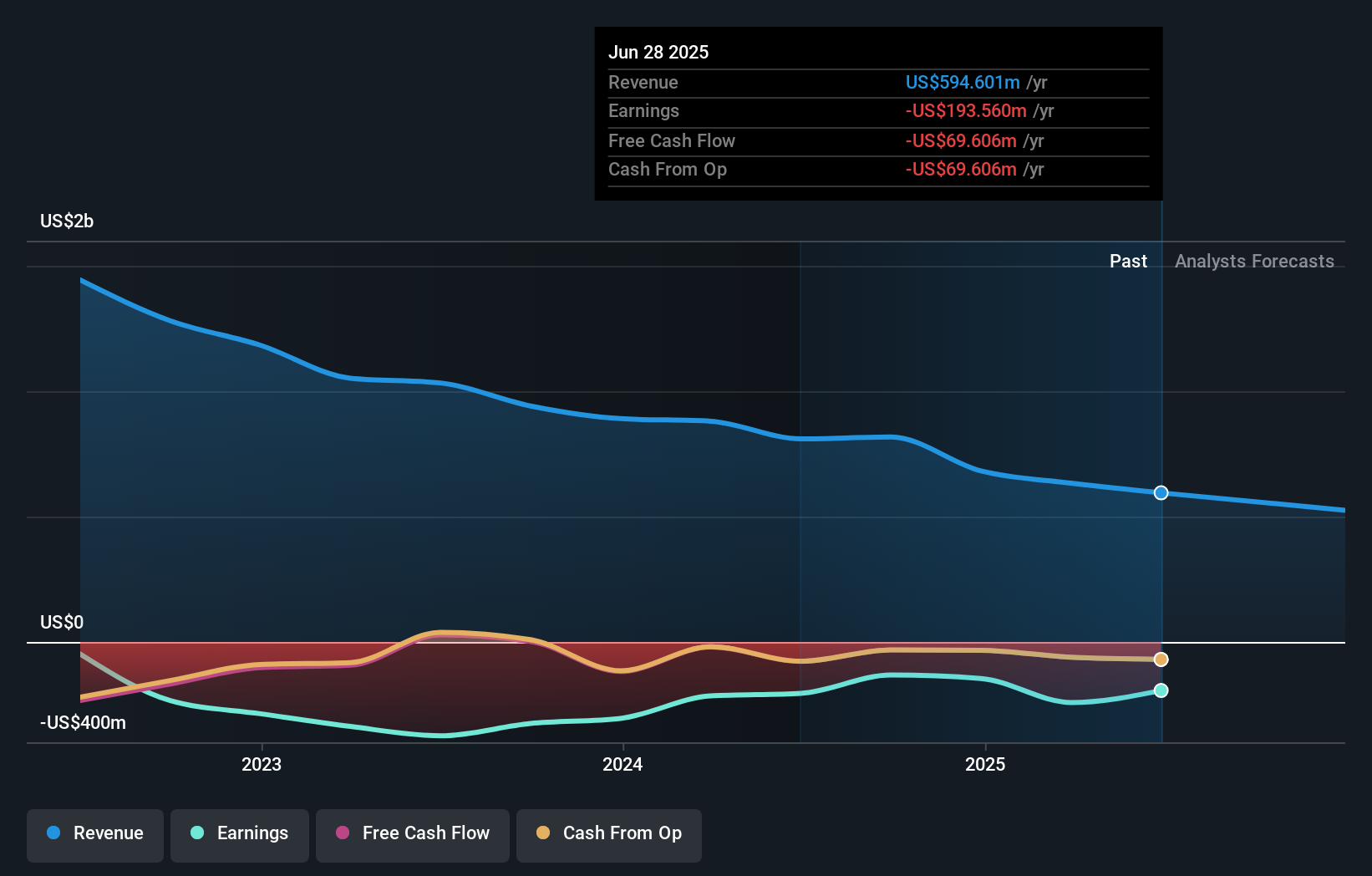- United States
- /
- Consumer Durables
- /
- NasdaqGS:IRBT
iRobot Corporation (NASDAQ:IRBT) surges 19%; retail investors who own 54% shares profited along with institutions
Key Insights
- The considerable ownership by retail investors in iRobot indicates that they collectively have a greater say in management and business strategy
- 35% of the business is held by the top 25 shareholders
- Institutional ownership in iRobot is 45%
If you want to know who really controls iRobot Corporation (NASDAQ:IRBT), then you'll have to look at the makeup of its share registry. We can see that retail investors own the lion's share in the company with 54% ownership. That is, the group stands to benefit the most if the stock rises (or lose the most if there is a downturn).
While retail investors were the group that reaped the most benefits after last week’s 19% price gain, institutions also received a 45% cut.
In the chart below, we zoom in on the different ownership groups of iRobot.
See our latest analysis for iRobot

What Does The Institutional Ownership Tell Us About iRobot?
Institutions typically measure themselves against a benchmark when reporting to their own investors, so they often become more enthusiastic about a stock once it's included in a major index. We would expect most companies to have some institutions on the register, especially if they are growing.
iRobot already has institutions on the share registry. Indeed, they own a respectable stake in the company. This implies the analysts working for those institutions have looked at the stock and they like it. But just like anyone else, they could be wrong. It is not uncommon to see a big share price drop if two large institutional investors try to sell out of a stock at the same time. So it is worth checking the past earnings trajectory of iRobot, (below). Of course, keep in mind that there are other factors to consider, too.

iRobot is not owned by hedge funds. The company's largest shareholder is The Vanguard Group, Inc., with ownership of 4.9%. With 3.3% and 2.5% of the shares outstanding respectively, JPMorgan Chase & Co, Brokerage and Securities Investments and Charles Schwab Investment Management, Inc. are the second and third largest shareholders.
Our studies suggest that the top 25 shareholders collectively control less than half of the company's shares, meaning that the company's shares are widely disseminated and there is no dominant shareholder.
While studying institutional ownership for a company can add value to your research, it is also a good practice to research analyst recommendations to get a deeper understand of a stock's expected performance. There is a little analyst coverage of the stock, but not much. So there is room for it to gain more coverage.
Insider Ownership Of iRobot
The definition of an insider can differ slightly between different countries, but members of the board of directors always count. The company management answer to the board and the latter should represent the interests of shareholders. Notably, sometimes top-level managers are on the board themselves.
Most consider insider ownership a positive because it can indicate the board is well aligned with other shareholders. However, on some occasions too much power is concentrated within this group.
Shareholders would probably be interested to learn that insiders own shares in iRobot Corporation. In their own names, insiders own US$1.7m worth of stock in the US$126m company. Some would say this shows alignment of interests between shareholders and the board, though we generally prefer to see bigger insider holdings. But it might be worth checking if those insiders have been selling.
General Public Ownership
The general public, who are usually individual investors, hold a substantial 54% stake in iRobot, suggesting it is a fairly popular stock. This size of ownership gives investors from the general public some collective power. They can and probably do influence decisions on executive compensation, dividend policies and proposed business acquisitions.
Next Steps:
It's always worth thinking about the different groups who own shares in a company. But to understand iRobot better, we need to consider many other factors. Consider for instance, the ever-present spectre of investment risk. We've identified 4 warning signs with iRobot (at least 3 which are a bit unpleasant) , and understanding them should be part of your investment process.
But ultimately it is the future, not the past, that will determine how well the owners of this business will do. Therefore we think it advisable to take a look at this free report showing whether analysts are predicting a brighter future.
NB: Figures in this article are calculated using data from the last twelve months, which refer to the 12-month period ending on the last date of the month the financial statement is dated. This may not be consistent with full year annual report figures.
Valuation is complex, but we're here to simplify it.
Discover if iRobot might be undervalued or overvalued with our detailed analysis, featuring fair value estimates, potential risks, dividends, insider trades, and its financial condition.
Access Free AnalysisHave feedback on this article? Concerned about the content? Get in touch with us directly. Alternatively, email editorial-team (at) simplywallst.com.
This article by Simply Wall St is general in nature. We provide commentary based on historical data and analyst forecasts only using an unbiased methodology and our articles are not intended to be financial advice. It does not constitute a recommendation to buy or sell any stock, and does not take account of your objectives, or your financial situation. We aim to bring you long-term focused analysis driven by fundamental data. Note that our analysis may not factor in the latest price-sensitive company announcements or qualitative material. Simply Wall St has no position in any stocks mentioned.
About NasdaqGS:IRBT
iRobot
Designs, builds, and sells robots and home innovation products in the United States, Europe, the Middle East, Africa, Japan, and internationally.
Slight risk and slightly overvalued.
Similar Companies
Market Insights
Community Narratives



